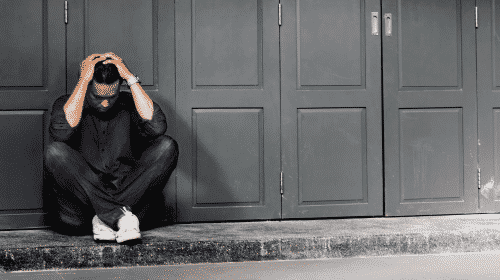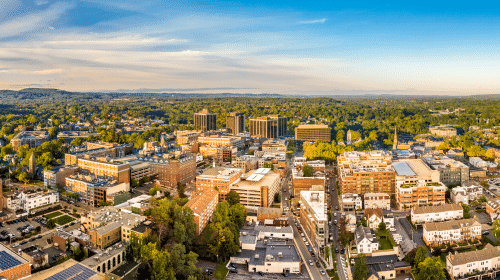Expert Insights
When I hear about the alarming number of deaths from fentanyl “overdoses” I am both saddened and angered. Why do we refer to deaths from the use of drugs that were laced with fentanyl without the users’ awareness as “overdoses”? I think very few people intentionally consume fentanyl; it is most often surreptitiously added to illicit drugs. Let’s call a spade a spade. Innocent people are being poisoned. Where’s the outcry and call for action?
Rita Milios
Top 7 Drug Rehabs in New Jersey
Every alcohol and drug rehab in New Jersey offers its own set of unique amenities, programs, and therapies. Evidence-based treatment is available at multiple inpatient centers in New Jersey. These facilities often provide a range of therapies, faith-based treatments, and outpatient options for recovery.
Below are the top seven addiction treatment centers in New Jersey based on the following criteria:
- Offering evidence-based treatment
- Accreditation
- Certifications
- Client testimonials / reviews
Recovery Centers of America at Lighthouse in Mays Landing, NJ
Since 2016, Recovery Centers of America has treated more than 55,000 people. Here, you will receive expert drug and alcohol addiction treatment, delivered with compassion and dignity, in a safe and comfortable environment.
There are two locations in New Jersey: Recovery Centers of America at Lighthouse in Mays Landing and Recovery Centers of America at Raritan Bay in South Amboy.
Treatment programs include:
- Medication-assisted treatment
- Medically-monitored detoxification
- Outpatient treatment both in-person and virtual
- Residential inpatient treatment
Treatment programs are supported by:
- Joint Commission accreditation
- LegitScript certification
- National Association of Addiction Treatment Providers (NAATP) member
Location and contact information:
5034 Atlantic Ave
Mays Landing, NJ 08330
(609) 782-0005
SOBA New Jersey Drug & Alcohol Rehab in New Brunswick, NJ
SOBA New Jersey provides comprehensive addiction treatment and mental health services for adults struggling with a wide range of substance use disorders. Their detox, clinical, and housing facilities are located in New Brunswick, each in walking distance from Rutgers University.
Treatment programs include:
- Medication-assisted treatment
- Medically-monitored detoxification
- Outpatient treatment both in-person and virtual
- Residential inpatient treatment
Treatment programs are supported by:
- Joint Commission accreditation
- LegitScript Certified
Location and contact information:
104 Bayard Street
New Brunswick, NJ 08901
732-844-8468
Sunrise House Treatment Center in Lafayette, NJ
Sunrise House has been providing inpatient and outpatient rehab in Lafayette, NJ for over 40+ years. Their drug and alcohol treatment center was once a monastery and is an easy drive or ride from most areas in the New York metro area.
Treatment programs include:
- Medication-assisted treatment
- Medically-monitored detoxification
- Outpatient treatment both in-person and virtual
- Residential inpatient treatment
Treatment programs are supported by:
- Commission on Accreditation of Rehabilitation Facilities (CARF) accreditation
- National Association for Behavioral Healthcare (NABH) member
- New Jersey Association of Mental Health and Addiction Agencies (NJAMHAA)
- Compliancy Group HIPAA Seal
- Better Business Bureau A+ Rating
Location and contact information:
37 Sunset Inn Road
Lafayette Township, NJ 07848
(973) 524-7451
Boca Recovery Center in Galloway, NJ
Boca Recovery Center in Galloway, New Jersey, offers residential addiction treatment to clients in a beautiful setting. Located close to the Jersey Shore, clients can expect to receive 24-hour medical care and medication-assisted treatment during detox before transitioning into a residential program.
Treatment programs include:
- Medical detox
- Inpatient rehab
- Outpatient rehab
- Medication-assisted treatment
- Cognitive behavioral therapy
- Eating disorders
- Specialized programs
- Group therapy
Treatment programs are supported by:
- Joint Commission accreditation
- LegitScript certification
Location and contact information:
30 W Jimmie Leeds Rd
Galloway, NJ 08205
(609) 270-3068
Behavioral Crossroads in Egg Harbor Township, NJ
Behavioral Crossroads is a dual licensed behavioral services agency that provides a full range of services for substance abuse treatment, including drug rehab treatment, alcohol addiction treatment programs, as well as mental health interventions.
Treatment programs include:
- General outpatient
- Intensive outpatient (IOP)
- Outpatient detox (WM – withdrawal management)
- Partial care programs
- Mental health programs
- Sober living
Treatment programs are supported by:
- Verified by Psychology Today
Location and contact information:
205 W Parkway Dr
Egg Harbor Township, NJ 08234
(609) 645-2500
Recovery First Treatment Center in Hollywood, FL
Serenity at Summit New Jersey offers a comprehensive approach to recovery. Offering detox services, and both inpatient and outpatient care, they will work alongside you to develop a unique treatment plan catered to your individual needs.
Treatment programs include:
- Medical detox services
- Medication-assisted treatment
- Residential or inpatient treatment
- Outpatient programs
- Family programs
- Holistic therapy
- Dual diagnosis programs
- 12-step programs
Treatment programs are supported by:
- LegitScript certification
Location and contact information:
1000 Galloping Hill Rd
Union, NJ 07083
(908) 341-1785
Footprints to Recovery in Hamilton Township, NJ
Footprints to Recovery’s rehab center in New Jersey will work with you to create a personalized plan that addresses your needs. They offer partial hospitalization, intensive outpatient, and outpatient programs.
Treatment programs include:
- Medical detox services
- Medication-assisted treatment
- Partial care program
- Intensive outpatient (IOP)
- Outpatient treatment
- Individual, group, and family therapy
- LGBTQ+ support
- Trauma-focused treatment
Treatment programs are supported by:
- Joint Commission accreditation
- LegitScript certification
- National Association of Addiction Treatment Providers (NAATP) member
- Assocation of Lesbian, Gay, Bisexual, Transgender Addiction Professionals (NALGAP) Member
- Association for Addiction Professionals member
Location and contact information:
3535 Quakerbridge Rd # 300
Hamilton Township, NJ 08619
(609) 415-1757
New Jersey Alcohol and Drug Use Statistics

The number of admissions in New Jersey drug and alcohol rehabs increased to almost 100,000 admissions in 2019.2

Heroin and alcohol were responsible for most inpatient admissions. Cocaine, other opiates, and marijuana were listed less frequently.

In 2019, more than 60% of individuals seeking treatment in New Jersey chose outpatient programs.2

The highest admission rates were in Camden, Ocean, and Essex counties (more than 8,000 admissions each).2
Drug-related deaths in New Jersey have also been steadily increasing, particularly overdose deaths related to opioid use. In 2018, 2,900 drug overdose deaths were reported in New Jersey, nearly 90% of them involving opioids.3
How Much Does Rehab in New Jersey Cost?
 The cost of a rehab program in New Jersey can vary widely, depending on many factors – one of those main factors being the level of care provided.
The cost of a rehab program in New Jersey can vary widely, depending on many factors – one of those main factors being the level of care provided.
Inpatient treatment is typically more expensive than outpatient treatment, as it includes lodging and meals for the duration of treatment. Inpatient programs may also offer additional amenities, which can increase the cost of treatment. Inpatient treatment may range from $2,000 to $25,000 for a 30-day stay.
The lower cost of outpatient care may account for the popularity of these less-intensive, but still proven programs. Because patients continue to live at home during outpatient treatment, meals and lodging are not a cost factor.
Some outpatient programs, including those that are state-funded, offer low-cost treatment. Others may cost up to $10,000, depending on the length of treatment and the specific services provided.
Low-Cost and Free Rehabs in New Jersey
One of the best ways to reduce the cost of rehab in New Jersey is with health insurance benefits. Thanks to the Affordable Care Act, all insurance plans must cover at least some of the costs associated with addiction treatment. In addition, most New Jersey rehabs are happy to work with clients to help them get the most out of their insurance benefits.
Even without health insurance, you still have options. Some state-funded rehab programs and detox centers in New Jersey provide free addiction treatment or sliding-scale payment plans for those who qualify. Free and low-cost rehabs are made possible with funding from state of New Jersey, allowing residents to seek help even if they lack the resources to pay for treatment.
Additional ways to overcome the financial burden of a New Jersey rehab include:
Choosing a Program With Payment Plans: Many treatment centers work with clients in need of assistance by offering payment plans. As long as your account is in good standing, you can remain in treatment and continue paying off the balance. Don’t hesitate to ask treatment centers about their payment options; they may offer financial assistance that is not advertised.
Apply for a Rehab Scholarship: Rehab scholarships are available through facilities and organizations willing to cover all or part of the cost of treatment for those who qualify. Ask your addiction specialist, physician, or staff working at rehabs in New Jersey for suggestions. Local churches, community organizations, and social services may also know of available scholarships.
Find a Sliding Scale Program: Many rehab programs offer sliding scale payment plans for those in need of financial assistance. With this type of financial assistance, the cost of treatment depends on your annual income and ability to pay on a consistent basis. To qualify, you may need to show proof of income and residency.
Ask About Employee Assistance Programs:
If you are employed, consider asking your human resources department if your company offers an Employee Assistance Program. They are meant to help employees experiencing challenges in their personal lives and may be able to help cover the cost of a drug or alcohol rehab in New Jersey.
Levels of Care for Addiction Treatment in New Jersey
Medical Detox
 Detox involves safely and comfortably clearing your system of all drugs and alcohol. The process occurs in a supervised setting with 24/7 monitoring by medical staff. The goal is to manage or alleviate your withdrawal symptoms, which allows you to move forward with recovery services.
Detox involves safely and comfortably clearing your system of all drugs and alcohol. The process occurs in a supervised setting with 24/7 monitoring by medical staff. The goal is to manage or alleviate your withdrawal symptoms, which allows you to move forward with recovery services.
Residential Treatment
Residential or inpatient treatment involves 24/7 care at a live-in rehab facility. Treatment methods often include individual, group, and family therapy. Additional methods may include medication administration, recreational therapy, and other holistic therapies.
Partial Hospitalization Programs (PHPs)
PHPs usually provide treatments similar to those used during inpatient treatment, but you only stay at the facility during treatment times, then return home.
Intensive Outpatient Programs (IOPs)
A step down from PHPs, IOPs often serve as a transition from PHPs to outpatient treatment. IOPs require several hours of treatment over several days per week.
Standard Outpatient
Standard outpatient programs are the least intensive outpatient treatment option. They involve two to three hours of care per week, typically at an outpatient clinic or a therapist’s office.
Aftercare
Aftercare provides follow-up and ongoing support after you complete an inpatient or outpatient program. It may include 12-step meetings and continued therapy, with the goal of relapse prevention.
Types of Drug and Alcohol Rehabs in New Jersey
Another consideration when evaluating New Jersey rehabs are the type of program you choose. The following are some of the different types of rehab programs you can expect to find in New Jersey.
Holistic Treatment
Holistic rehab programs are designed to treat the whole person: mental, physical, emotional, and spiritual. Expect holistic treatment centers to place a greater emphasis on physical activity, nutrition, and self-care. Additional amenities offered may include yoga and meditation classes, time spent in nature, and creative arts.
Christian and Faith-Based Programs
Facilities that describe themselves as faith-based are most often built on Christian themes and traditions. Individuals with a strong religious preference may find it helpful to attend programs that incorporate their religious beliefs. Some programs may be led by clergy members who provide a source of guidance and encouragement for patients.
Luxury Treatment
Luxury rehab centers are designed to provide a relaxing and comfortable atmosphere that may feel more like a spa or resort. These facilities offer upscale and private accommodations, as opposed to basic, shared rooms found in many other rehab facilities. Additional luxury amenities may include massage and other spa-like services, gourmet meals, and a smaller staff-to-patient ratio to ensure comfort and privacy.
Executive Rehab
Executive drug rehab programs are designed to meet the needs of working professionals. Executive facilities typically offer a high degree of privacy, as well as amenities such as private conference rooms and secure WiFi so clients can continue to fulfill professional duties during treatment.
Dual Diagnosis Rehabs in New Jersey
Many people with substance use disorder also experience some sort of mental health issue, such as anxiety, depression, or post-traumatic stress disorder (PTSD). The presence of a substance use disorder and a mental illness is referred to as dual diagnosis. In fact, 17 million adults in the United States experienced a co-occurring substance use disorder and mental illness in 2020.4
Treatment that addresses the substance use disorder and mental health disorder at the same time has been shown to have better outcomes, including improvement in psychiatric functioning, improved quality of life, fewer hospital stays, more stable home life, and fewer arrests.5
Many rehab facilities in New Jersey now offer dual diagnosis treatment, which includes the use of certain therapeutic approaches shown to help with conditions such as depression, anxiety, PTSD, bipolar disorder, and personality disorders. If you have a dual diagnosis, be sure to choose a rehab program that offers treatment for your condition.
Common Co-Occurring Disorders
Depression and Addiction
Research has shown that adults with a diagnosis of alcohol dependence were 3.7 times more likely to experience major depression than adults without alcohol dependence.6 Treating a co-occurring substance abuse disorder and depression can be difficult. Antidepressant medications can reduce depressive symptoms, but have not been found to reduce excessive drinking. Treatment may include a combination of antidepressants, medication to treat alcohol dependence, cognitive behavioral therapy (CBT), family therapy, and other therapeutic approaches as needed.
Anxiety and Addiction
Individuals who have been diagnosed with anxiety disorders are roughly twice as likely to have a drug use disorder7 Cognitive behavioral therapy, which is commonly used in rehab settings, is also one of the most effective treatments for anxiety disorders. Treatment for both substance use and anxiety may include a combination of medication and other therapeutic approaches, including EMDR (eye movement desensitization and reprocessing).
PTSD and Addiction
Research indicates that individuals with PTSD are three times more likely to have a substance use disorder.8
PTSD can be the result of any intense or long-lasting trauma, including sexual violence, physical assault, an accident, or combat exposure. It affects up to 18% of combat veterans.9 A combination of antidepressants, cognitive behavioral therapy, and other therapeutic approaches can help individuals with both PTSD and substance use disorder.
Bipolar Disorder and Addiction
Research shows that between 40% and 70% of individuals diagnosed with bipolar disorder also experience substance use disorder.10 Drug use can lead to severe bipolar symptoms and even suicide attempts. Therapeutic approaches for the treatment of co-occurring bipolar and substance use disorders may also include CBT, motivational interviewing, and integrated group therapy. Some medications used to treat bipolar disorder may also help treat addiction.10
Should You Travel to New Jersey for Rehab?
 Many New Jersey rehabs are near the neighboring cities of New York and Philadelphia. Rehab programs in New Jersey may be more affordable than programs in these large cities while still providing access to quality treatment.
Many New Jersey rehabs are near the neighboring cities of New York and Philadelphia. Rehab programs in New Jersey may be more affordable than programs in these large cities while still providing access to quality treatment.
North Jersey is closer to New York while south Jersey neighbors Philadelphia, which may be important for you to consider when choosing a region of New Jersey to attend rehab. Additionally, some addiction treatment programs may be located near the Jersey Shore or on lakes, such as in Medford.
Alcohol and Drug Laws in New Jersey
New Jersey policy makers have established the following laws related to substance abuse:11,2,3,4,5
New Jersey Good Samaritan Law: New Jersey’s Overdose Prevention Act provides protection from criminal prosecution for New Jersey residents who report or seek help for suspected overdose on illegal drugs. The law encourages people to call 911 immediately, without fear of legal repercussions.
New Jersey Driving or Operating Under the Influence Laws: New Jersey Driving or Operating Under the Influence Laws: Under New Jersey Law, if an offender’s blood alcohol content (BAC) is between 0.08 and 0.10, the penalties are a fine of $250-$400, imprisonment for up to 30 days, driver’s license forfeiture until ignition interlock is installed (required for three months), a minimum of six hours a day for two days in an Intoxicated Driver Resource Center, and an automobile insurance surcharge of $1,000 per year for three years. Penalties increase for higher BACs and repeated offenses.
New Jersey Naloxone Blank Standing Orders: Per New Jersey’s blank standing orders, all residents can distribute the opioid overdose antidote medication known as Naloxone to people they believe to be at risk of overdose or those who will be in a position to administer the antidote. Additionally, all pharmacists can provide Naloxone without a prescription.
New Jersey Cannabis Regulatory, Enforcement Assistance, and Marketplace Modernization Act (CREAMM): This law allows adults 21 years or older to use, purchase, and carry cannabis. Recreational users can purchase up to 1 ounce of cannabis, but the law does not permit personal growing of the plant.
New Jersey Drug Courts: This program offers non-violent drug offenders an alternative to prison. New Jersey residents convicted of a drug-related crime may be eligible to complete a supervised drug or alcohol treatment program instead of serving jail time.
Resources
- U.S. Department of Health and Human Services. (2018). Principles of Effective Treatment.
- Department of Human Services. (2019). Substance Abuse Overview 2019.
- U.S. Department of Health and Human Services. (2020). New Jersey: Opioid-Involved Deaths and Related Harms.
- Substance Abuse and Mental Health Services Administration. (2021). Results from the 2020 National Survey on Drug Use and Health.
- Substance Abuse and Mental Health Services Administration. (2022). The Case for Screening and Treatment of Co-Occurring Disorders.
- Pettinati, H.M., & Dundon, W.D. (2011). Comorbid depression and alcohol dependence. Psychiatric Times, 28(6).
- National Institute on Drug Abuse. (2008). Comorbidity: Addiction and Other Mental Illnesses.
- Gielen, N., Havermans, R. C., Tekelenburg, M., & Jansen, A. (2012). Prevalence of post-traumatic stress disorder among patients with substance use disorder: it is higher than clinicians think it is. European journal of psychotraumatology, 3, 10.3402/ejpt, v3i0, 17734.
- Lawson, Nicole R. (2014). Posttraumatic stress disorder in combat veterans. Journal of the American Academy of PAs, 27(5).
- Ostacher, Michael J & Sachs, Gary S. (2006). Update on bipolar disorder and substance abuse: recent findings and treatment strategies. The Journal of Clinical Psychiatry, 67(9).
- Goretti, S. (2017). The relationship between personality disorders and substance abuse disorders. European Psychiatry, 41(S473-S474).
- Substance Abuse and Mental Health Services Administration. (2013.) Family Therapy Can Help. Substance Abuse and Mental Health Services Administration.
- Newsweek. (2021). America’s Best Addiction Treatment Centers.
- Map. (n.d.). SAMHSA Behavioral Health Treatment Services Locator. Retrieved December 12, 2022, from https://findtreatment.samhsa.gov/locator.html




